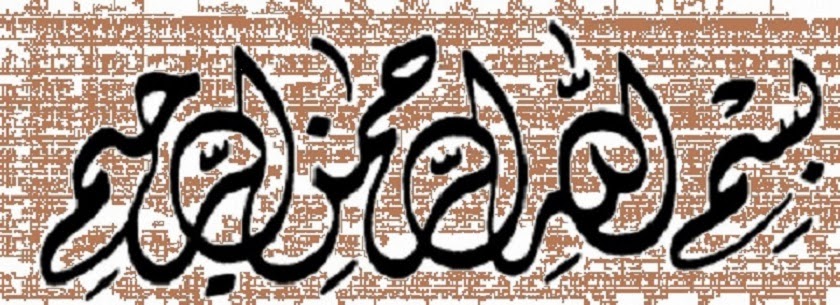Shaykh Muhammad bin Saaleh al-‘Uthaymeen [May Allaah have Mercy on him and grant him the highest station in Jannah] said:
This form of permitted lying is from the ways of the Jews, Christians and the Zoroastrians and others from the people of Kufr.
Some of the reservations we have of this day:
1) They lie, and lying in our Shar’eeah is Haraam.
2) It involves imitating the Kuffaar and imitating the Kuffaar is Haraam. The Prophet [Peace and Blessings of Allaah be Upon him] said, “Whoever imitates a nation then he is from them.” [Narrated by Aboo Dawood (4031); classified as Saheeh by al-Albaanee in Saheeh Aboo Dawood (3401)]
Shaykh al-Islaam Ibn Taymiyyah [May Allaah have Mercy on him] said, “It’s authenticity is acceptable. The ruling on imitation based on this Hadeeth is that it is Haraam but if we look at the apparent wording, imitation would mean one has done an act of Kufr (disbelief) as they are behaving like those who disbelieve.” [‘Iqtidaa as-Siraat al-Mustaqeem (1/042)]
Added to these are two are other major reservations:
3) The Muslims are succumbing to the ways of their enemies, because it is known by human nature, that the one who follows is impacted by the one whom he is following. If someone takes another to follow, then he believes that the one he is following is better than him.
Based on this, following them in their practices (i.e. religious, acts of worship, festivals etc.) causes weakness for this nation and causes the believers to be downgraded in their status, causing inferiority of the Muslims to the Kuffaar.
4) The fourth reservation is that most often, meaning the lies that spread, lead to people's wealth being lost. It also leads to another Muslim being frightened. Because of these lies, sometimes families are also affected. For example, a person may lie to another person by saying, “You are invited to eat at our house and many people will gather and we will prepare a huge banquet" but he is lying, and examples similar to this are all impermissible.
So it is obligatory upon the Muslim, to fear Allaah, the Glorified and the High, and that you uphold His Religion, be proud and pleased with it.
I have a guarantee to every Muslim, those who seek honour in the Religion of Allaah, that if they uphold their religion then they will be honoured with the people and their enemies will become inferior to them.
Do not think - oh Muslim – that following the Kuffaar, their manners and habits, causes one to be honoured and given superiority! Rather it causes one to be debased!
You are aware that if someone was to copy you in one of your deeds or actions, then you will experience these people following you will humble themselves towards you. To the extent that some of them will even imitate you in (everything that you do), and this is again something known by human nature.
So everyone who looks at our enemies, they will soon realise that we are actually stronger than them. We have more honour than them through our religion. We are not affected by their plotting against us. We are given guidelines on how to interact with them according to our Shar’eeah. The One Who Has Legislated (i.e. Allaah) for us has given us a solution for every time and every place (through being steadfast upon the religion). After He Sent the Prophet [Peace and Blessings of Allaah be Upon him] to mankind, the following Aayah was revealed:
“Say (O Muhammad): "O mankind! Verily, I am sent to you all as the Messenger of Allah” [A’raaf 7:158]
It is also narrated that the Prophet [Peace and Blessings of Allaah be Upon him] said, “By the One Whose Hands is in my soul, there is not a Jew or a Christian, that doesn’t believe in what I have come with, except he will be from the people of the fire.” [Narrated by Muslim (153)]
If this is the affair of the People of the Book, then what about those lesser than them from the Kuffaar?
Everyone who hears of the Prophet [Peace and Blessings of Allaah be Upon him] and does not follow him will be in the fire.
So if this is the reality of the situation, then what is wrong with us - oh Muslims – that we have made ourselves inferior and follow the way of those who are against us!?
We all know that what happened in the incident with Hercules, the great ruler of the Romans, and Abee Sufyaan. Aboo Sufyaan went to Hercules (to complain against the Prophet) yet he was not able to lie against him [Peace and Blessings of Allaah be Upon him]. He was careful in not saying anything that is not true about the Messenger of Allaah [Peace and Blessings of Allaah be Upon him].
So if this how the Kaafir (at that time Aboo Sufyaan was not a Muslim) dealt with the honour of the Prophet [Peace and Blessings of Allaah be Upon him], then what is wrong with you – Oh Muslim – that you need to lie?
And all Strength is from Allaah.
[Noor ‘ala al-Darb (Tape 17, 7:39 mins)]
[1] Shaykh al-Islaam Ibn Taymiyyah [May Allaah have Mercy on him]:
‘Alee bin Abee Taalib (May Allaah be Pleased with him) merely forbade the Muslims from using the same names (i.e. that it is not permissible to use names like Christmas, Boxing Day, Mother’s Day, April Fool’s Day etc.) that the Kuffaar do for their religious festivals (and special occasions), so how about those who participate on these days as they do?
[Iqtidaa’ as-Siraat al-Mustaqeem (1/516)]
